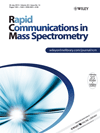
RAPID COMMUNICATIONS IN MASS SPECTROMETRY
Scope & Guideline
Elevating standards in analytical and organic chemistry.
Introduction
Aims and Scopes
- Methodological Advancements:
The journal emphasizes the development of new mass spectrometric techniques and enhancements to existing methods, such as ion mobility spectrometry, tandem mass spectrometry, and high-resolution mass spectrometry. - Application in Various Fields:
Research published often highlights applications of mass spectrometry across diverse domains including environmental science, pharmacology, food safety, and clinical diagnostics. - Isotopic Analysis:
A significant focus is placed on stable isotope analysis, exploring its applications in environmental studies, dietary investigations, and forensic science. - Metabolomics and Proteomics:
The journal frequently features studies on metabolomics and proteomics, emphasizing the role of mass spectrometry in biomarker discovery and analysis of complex biological samples. - Doping Control and Pharmaceutical Analysis:
Research related to doping control in sports and the analysis of pharmaceuticals is prevalent, demonstrating the journal's commitment to addressing societal issues through mass spectrometry. - Machine Learning and Data Analysis:
The integration of machine learning techniques and advanced data analysis methods in mass spectrometry research is increasingly highlighted, indicating a trend towards computational approaches.
Trending and Emerging
- Integration of Machine Learning:
A significant increase in studies using machine learning for data analysis and compound identification in mass spectrometry indicates a trend towards computationally-driven research. - Advanced Isotope Ratio Techniques:
Emerging research on advanced isotope ratio techniques, particularly in environmental and biological contexts, is gaining attention, highlighting the growing importance of isotopic studies. - High-Throughput and Automation:
There is a clear trend towards automation and high-throughput methodologies, allowing for the rapid analysis of complex samples in various fields. - Multi-Component Analysis:
Increasing interest in multi-component analysis reflects the need for comprehensive profiling in metabolomics and environmental studies, moving beyond single-analyte methodologies. - Focus on Health and Disease Biomarkers:
Research targeting health-related biomarkers, particularly in the context of metabolomics and proteomics, is on the rise, indicating a strong focus on clinical applications. - Environmental and Food Safety Applications:
The journal is increasingly publishing studies aimed at environmental monitoring and food safety, reflecting growing public interest and regulatory needs.
Declining or Waning
- Traditional Chemical Analysis:
There is a noticeable decrease in papers focused on traditional chemical analysis techniques that do not leverage the latest advancements in mass spectrometry, as newer methodologies become the norm. - Basic Ionization Techniques:
Research centered on basic ionization techniques, such as simple electrospray or matrix-assisted laser desorption, is becoming less frequent as more sophisticated ionization methods gain traction. - Historical or Low-Resolution Mass Spectrometry:
Studies that focus on historical mass spectrometric methods or low-resolution techniques are waning, as the field moves towards high-resolution and high-throughput methodologies. - Single-Analyte Studies:
The trend of single-analyte studies is declining in favor of more comprehensive approaches that analyze multiple compounds or complex mixtures simultaneously. - Environmental Monitoring with Limited Scope:
Research focusing solely on environmental monitoring without the integration of advanced mass spectrometric techniques is becoming less common.
Similar Journals

ATOMIC SPECTROSCOPY
Exploring Innovations in Molecular Analysis.ATOMIC SPECTROSCOPY is a distinguished journal specializing in the field of spectroscopy and published by ATOMIC SPECTROSCOPY PRESS LTD. With ISSN 0195-5373 and e-ISSN 2708-521X, this journal has been a cornerstone in advancing the discipline since its inception, thriving in its relevant domain for over four decades, covering converged research years from 1980 to 1989 and from 1996 to 2024. Currently holding a Category Quartile of Q2 in Spectroscopy for 2023, ATOMIC SPECTROSCOPY ranks 34th among 76 in its field according to Scopus, placing it in the 55th percentile, thereby affirming its critical role as a resource for researchers, professionals, and students alike. This journal serves as a platform for disseminating innovative research, methodological advancements, and breakthroughs in atomic and molecular spectroscopy, fostering a comprehensive understanding that is essential for progress in analytical chemistry and related disciplines. While it operates under a non-open access model, the journal ensures broad reach and visibility within the academic community. For those passionate about spectroscopy, ATOMIC SPECTROSCOPY remains an invaluable resource for staying updated on the latest developments, contributing to its reputation as a leading journal in the field.

Separation Science Plus
Empowering researchers with impactful insights in separation techniques.Separation Science Plus is an emerging academic journal dedicated to advancing the field of analytical chemistry and separation science. Published by WILEY-VCH Verlag GmbH, this journal provides a platform for researchers to disseminate high-quality studies and reviews that address innovative techniques and breakthroughs in separation methodologies. With its ISSN 2573-1815, the journal has made significant inroads since its inception in 2018, encompassing a convergence period until 2024. Despite currently holding a Q3 ranking in Analytical Chemistry and a Q4 ranking in Filtration and Separation, its dedication to publishing impactful research makes it a vital resource for professionals and students alike. The journal operates under the robust scholarly reputation of WILEY, which is known for its commitment to excellence in scientific communication. Researchers interested in the latest advancements in separation techniques will find Separation Science Plus an essential read, fostering the exchange of knowledge and facilitating greater understanding within this specialized field.
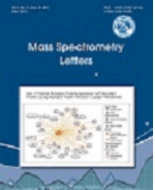
Mass Spectrometry Letters
Transforming Research into Accessible Knowledge.Mass Spectrometry Letters is a pioneering open-access journal published by the Korean Society for Mass Spectrometry, specializing in the diverse fields of analytical chemistry, biochemistry, and spectroscopy. Established in 2010, this journal aims to disseminate groundbreaking research and advancements in mass spectrometry and its applications across various scientific domains. Though currently categorized in the Q4 quartile in key analytical fields, Mass Spectrometry Letters serves as an essential platform for researchers, professionals, and students to share innovative methodologies, emerging trends, and practical applications of mass spectrometry, thus fostering collaboration and advancing knowledge in the scientific community. With a commitment to open access, articles published since 2010 are readily available, enabling widespread distribution and engagement within the international research community. Located in Daejeon, South Korea, and actively converging research through 2024, the journal holds the potential to grow its impact and relevance within the dynamic landscape of mass spectrometry.

ChemistryMethods
Bridging Theory and Practice in Chemical SciencesChemistry Methods, published by WILEY, is an esteemed journal in the field of chemical sciences that serves as a vital platform for disseminating cutting-edge research and methodologies across various domains of chemistry. With a focus on practical approaches in areas such as fluid flow and transfer processes, spectroscopy, electrochemistry, and catalysis, this journal has achieved impressive ranks in Scopus—including a notable 15th position in both fluid flow and spectroscopy categories, which reflects its significant contribution to advancing the discipline. Although Chemistry Methods operates under a traditional access model, it remains crucial for researchers, professionals, and students who are eager to engage with high-quality original research and reviews. Since its inception in 2021, the journal's objective has been to bridge the gap between theoretical knowledge and practical application in chemistry, fostering innovation and collaboration within the global scientific community.

CHINESE JOURNAL OF ANALYTICAL CHEMISTRY
Fostering Scientific Inquiry in Analytical ChemistryCHINESE JOURNAL OF ANALYTICAL CHEMISTRY, published by SCIENCE PRESS in China, stands as a prominent platform in the field of analytical chemistry since its inception in 1989. With its ISSN 0253-3820 and E-ISSN 1872-2040, the journal maintains a vital role in disseminating empirical research and innovative methodologies, contributing to the advancement of analytical techniques and their applications. The 2023 Scopus ranking positions the journal in the third quartile (Q3) within its category, reflecting a respectable standing among its peers. Researchers, professionals, and students alike engage with a broad range of topics, from instrumental analysis to environmental monitoring, each aiming to foster further scientific inquiry. Although it does not currently offer Open Access, the journal's rich repository of knowledge continues to be an essential resource for those in the analytical chemistry community, with an enduring commitment to scientific excellence and collaboration.
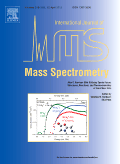
INTERNATIONAL JOURNAL OF MASS SPECTROMETRY
Transforming Analytical Chemistry Through Mass SpectrometryINTERNATIONAL JOURNAL OF MASS SPECTROMETRY, published by Elsevier, is a pivotal platform in the field of mass spectrometry, advancing the understanding and application of this essential analytical technique. With an ISSN of 1387-3806 and an E-ISSN of 1873-2798, the journal has established its significance since its inception in 1998 and continues to contribute valuable insights to the scientific community through its convergence of knowledge extending to 2024. Its scope encompasses critical areas such as condensed matter physics, instrumentation, physical and theoretical chemistry, and spectroscopy, earning recognition across various ranks and quartiles, specifically holding a Q3 classification in multiple categories for 2023. Although it does not currently operate under an open access model, the journal remains an essential resource for researchers, professionals, and students striving to deepen their expertise and stay abreast of the latest methodological developments and discoveries in mass spectrometry. With its commitment to quality and innovation, the INTERNATIONAL JOURNAL OF MASS SPECTROMETRY plays a crucial role in supporting advancements in analytical chemistry and instrumental analysis.
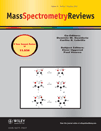
MASS SPECTROMETRY REVIEWS
Unveiling the Science Behind SpectrometryMASS SPECTROMETRY REVIEWS, published by Wiley, is a premier academic journal dedicated to advancing the field of mass spectrometry and its applications across a multitude of scientific disciplines. With an ISSN of 0277-7037 and an E-ISSN of 1098-2787, the journal has established itself as a vital resource within the realms of Analytical Chemistry, Biochemistry, Genetics, Condensed Matter Physics, and Spectroscopy, achieving Q1 status across these categories in 2023. As a testament to its significant contribution to scholarly research, it boasts impressive Scopus rankings, including a rank of #2 out of 76 in Chemistry - Spectroscopy and #4 out of 156 in Chemistry - Analytical Chemistry, placing it in the 97th percentile and above. Emphasizing high-quality, peer-reviewed research, MASS SPECTROMETRY REVIEWS serves as an essential platform for researchers, professionals, and students aiming to stay abreast of cutting-edge developments and methodologies in mass spectrometry. The journal is committed to fostering a deeper understanding of mass spectrometric techniques while also contributing to interdisciplinary advancements, making it a valuable addition to any academic library. Authors seeking to disseminate their work in a journal with a strong reputation and impact in the scientific community will find MASS SPECTROMETRY REVIEWS an ideal venue.
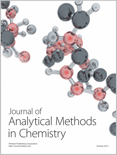
Journal of Analytical Methods in Chemistry
Pioneering research in the realm of analytical chemistry.The Journal of Analytical Methods in Chemistry, published by HINDAWI LTD, stands as a premier platform dedicated to the dissemination of research in the vibrant field of analytical chemistry. With an ISSN of 2090-8865 and an E-ISSN of 2090-8873, this Open Access journal has been committed to providing unrestricted access to quality research since 1978, thereby fostering greater collaboration and innovation among researchers, professionals, and students globally. The journal showcases rigorous research insights spanning diverse categories, earning impressive Scopus rankings including Q2 in Chemical Engineering and Q3 in Analytical Chemistry for 2023, positioning itself effectively among respected peers. Its interdisciplinary approach also covers significant contributions in the realms of instrumentation and computer science applications, thus addressing contemporary challenges and advancements in analytical methodologies. By bridging theoretical underpinnings with practical applications, the Journal of Analytical Methods in Chemistry aims to catalyze knowledge exchange while enhancing the global discourse in analytical science.
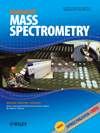
JOURNAL OF MASS SPECTROMETRY
Illuminating the Path of Analytical ExcellenceThe Journal of Mass Spectrometry, published by Wiley, is a vital resource for researchers and professionals in the fields of chemistry and medicine. With an ISSN of 1076-5174 and an E-ISSN of 1096-9888, this journal specializes in the latest advancements in mass spectrometry, an essential analytical tool used in various applications including drug development, environmental monitoring, and biological research. Positioned in the Q3 quartile for both Medicine (miscellaneous) and Spectroscopy categories in 2023, the journal stands out for its commitment to disseminating high-quality research findings. Its Scopus ranking places it at 36th in the field of Chemistry _ Spectroscopy, within the 53rd percentile, reflecting its growing impact and relevance. Researchers are encouraged to submit their work and explore cutting-edge articles published between 1995 and 2024. Despite its non-open access model, the journal remains accessible through various academic platforms, fostering a rich exchange of knowledge among scientists worldwide.
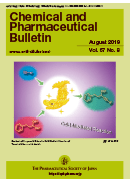
CHEMICAL & PHARMACEUTICAL BULLETIN
Delivering critical insights for the evolving fields of chemistry and medicine.CHEMICAL & PHARMACEUTICAL BULLETIN, published by the Pharmaceutical Society of Japan, has been a cornerstone in the fields of chemistry, drug discovery, and medicine since its inception in 1958. With an ISSN of 0009-2363, this esteemed journal offers a platform for the dissemination of innovative research and critical insights contributing to these dynamic disciplines. Housed in Tokyo, Japan, it is strategically poised to bridge the gap between chemical sciences and pharmaceutical applications. Although the journal operates under a traditional subscription model and does not currently offer open access, it maintains a solid reputation, evidenced by its Q3 category rankings in multiple relevant fields and its percentile positions in Scopus, specifically 48th in General Chemistry and 30th in Drug Discovery. Researchers, professionals, and students alike will find invaluable resources within its pages, as it diligently covers shifting paradigms and emerging methodologies critical to advancing both theoretical understanding and practical applications in the pharmaceutical realm.